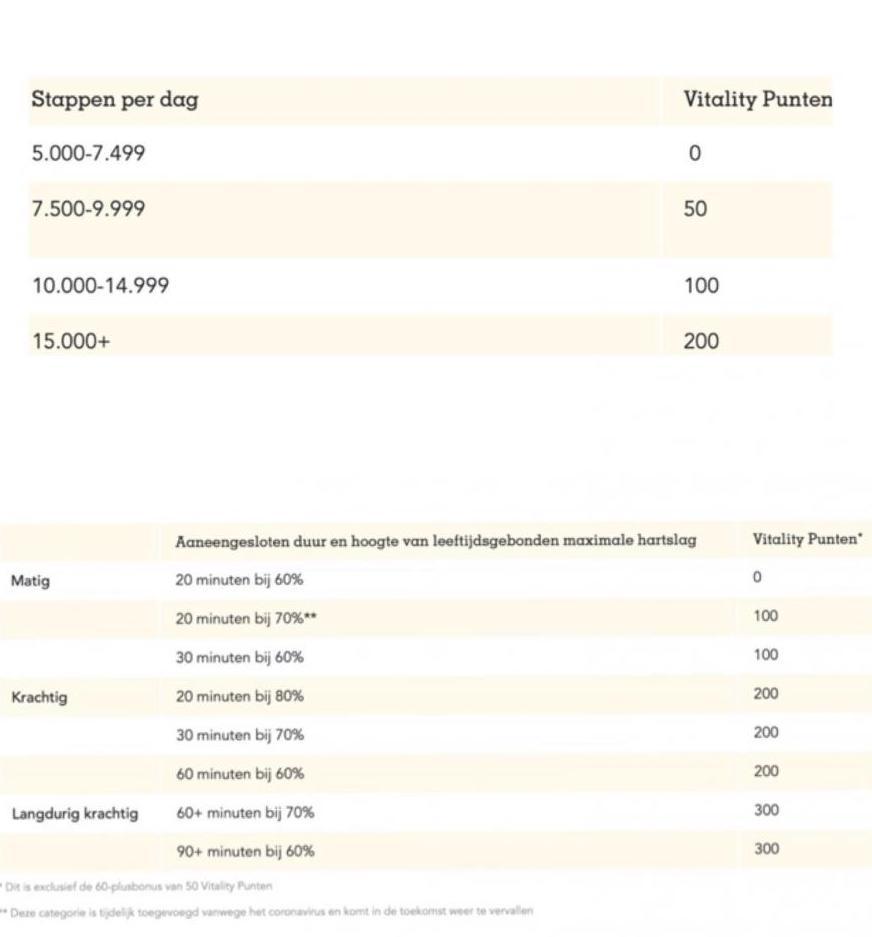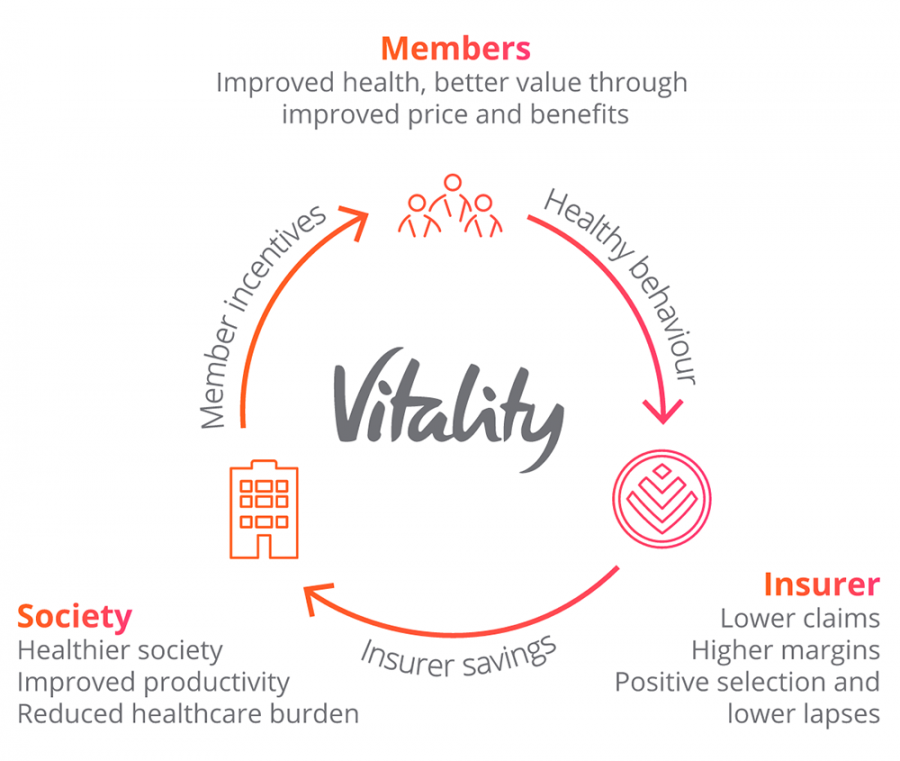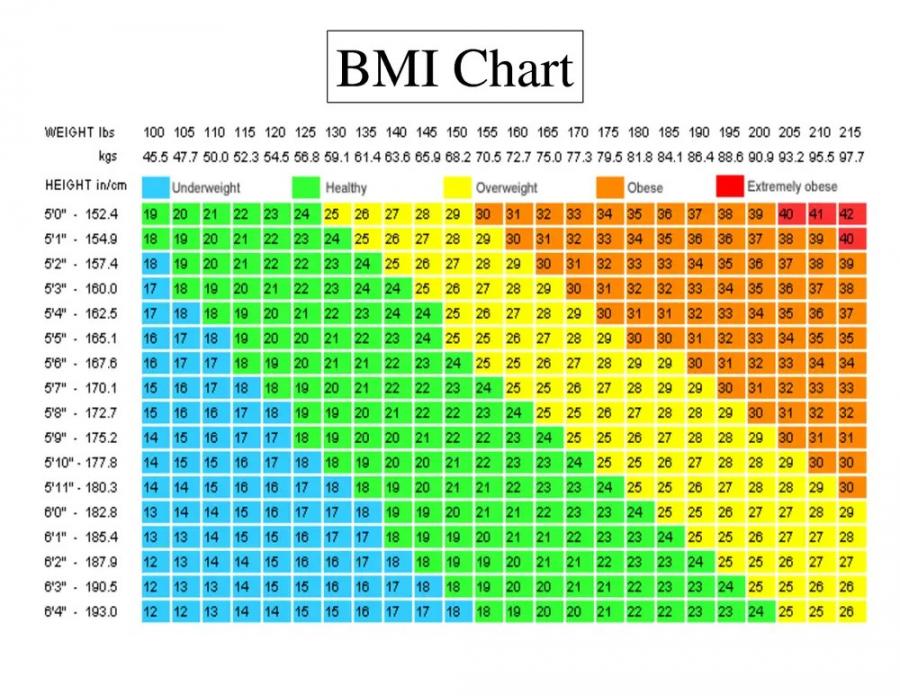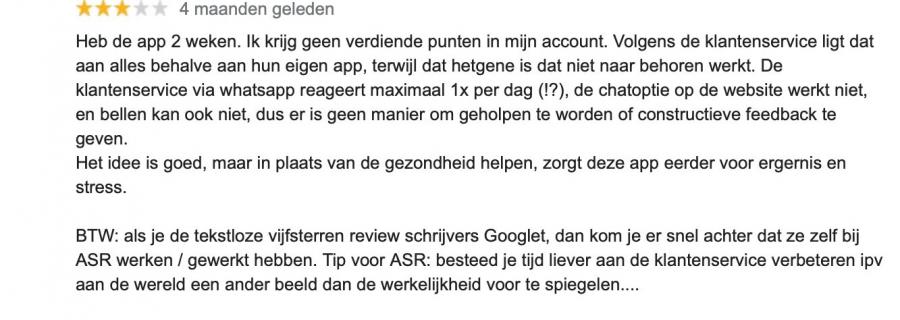
How an insurance company motivates clients to stay healthy: the a.s.r. Vitality app
Imagine receiving rewards and shopping discounts for completing your weekly amount of exercise. Sounds great, isn't it? This is exactly what the a.s.r. Vitality app does for you. The application aims to motivate its users to exercise, lead a healthy lifestyle, and it also offers a range of incentives for doing so. Every form of exercise brings you closer to achieving weekly, monthly, and annual rewards for reaching specific exercise goals.
This article examines how the a.s.r. Vitality app communicates societal norms about health through the lens of Michel Foucault, with a particular focus on the concepts of the panopticon, social hygiene, and the care of the self.
a.s.r Vitality app: the health application
a.s.r Vitality is a platform based on behavioural science that motivates people to exercise daily. It is a health tracking app established by the American behaviour change platform – Vitality and a.s.r – a Dutch health insurance company based in Utrecht. The concept of a.s.r Vitality is to encourage people to exercise more through a specialized reward system. After activating the application, users receive personalized goals that are based on their answers to questions on their current health situations. Every form of exercise grants users Vitality Points based on which a.s.r Vitality determines whether their users reached one of the three primary goals – weekly, monthly and annual. For instance, as shown in Figure 1, users receive 50 Vitality Points if they make between 7500 and 9000 steps a day. When people reach these goals, they obtain rewards or premium discounts offered by various kinds of brands that a.s.r Vitality cooperates with. The exclusive deals are available for the a.s.r. Vitality users in the a.s.r. Webshop. Besides getting rewards, users can receive cashback for the a.s.r insurance if they manage to reach their goals. In other words, the more you work out, the less you will pay for your health insurance. To use the app and get rewards, users need to pay 3,50 Euros per month for a subscription.

Figure 1: The standard Vitality Point when reaching goals
The customers of a.s.r Vitality are categorized into three main groups: private users, entrepreneurs, and employers. The company operates, therefore, on both a personal and organizational level. Private users can focus on their personal goals, while organizations can use the application to encourage their employees to lead healthier lifestyles.
a.s.r Vitality works accordingly to the “shared-value” concept, which implies that the company benefits from initiating societal change, or specifically behavioural change. The company encourages people to stay healthy, because they can benefit from it as well, for instance, with lower declaration costs for the insurance company itself – a win-win situation . Figure 2 shows that the "shared-value" model creates benefits for its members, such as improved health, for businesses by decreasing their costs and for the society by means of its contribution to a better and more productive environment. According to this concept, people become healthier and are able to initiate positive impacts on society.

Figure 2. Vitality's shared value concept
Panopticon and the ability to shape others’ behaviour
Receiving discounts and additional rewards as an extra prize for cultivating healthy habits may sound like a utopian dream, but it is important to realize that the subscription fee is not the only price people have to pay for the service. They also need to share their data, such as MBI, body size, and other personal details with the insurance company. It does not seem like a huge deal – after all, it costs the customers nothing to share that information, and in exchange, they receive personalized goals and various goods. Or rather: it costs the customers almost no money, but there is another price to pay.
It costs the customers almost no money, but there is another price to pay.
Foucault (1995) believed that power and knowledge come from observing other people. He used the panopticon notion as a metaphor to explain the connection between these two concepts. Panopticon, first introduced in the 19th century by Bentham (1787) is an architectural project of a prison, designed in such a way that the structure allows prison guards to observe prisoners without them knowing if and when they are being watched. Due to this design, prisoners tend to adjust their behaviour, and act as if they were watched continuously (see Figure 3). In a way, prisoners become prison guards to themselves, watching over themselves in fear that someone is watching them.
Figure 3. The Panopticon
Foucault elaborated on this notion of a panopticon and connected its functioning to other institutions as well, such as schools, asylums, or even factories. In Foucault’s words, “Its aim was to establish presences and absences, to know where and how to locate individuals, to set up useful communications, to interrupt others, to be able at each moment to supervise the conduct of each individual, to assess it, to judge it, to calculate its qualities or merits.” (Foucault, 1995, p.143). According to Foucault, the knowledge about other people’s behaviour gives the observer power to influence the behaviour of others.
Access to different kinds of personal information can therefore provide a very powerful knowledge base in the digital world. The database that a.s.r Vitality maintains allows the company to collect, compare, analyze and sell information about people’s behaviour. It enables them to constantly monitor the habits and changes in the lives of users, compare individuals and groups with each other, and adapt their behaviour to what they believe is a healthy lifestyle. Comparing data from dozens of users gives a.s.r. Vitality a great chance to see how people react to different objectives. They can observe who is more likely to give up, and who will do absolutely anything to achieve the goal and earn the prize. The affordances of the app enable the company to push people in a certain direction: to help them adjust their lifestyle, so they are able to fully devote themselves to fit in, and therefore, be “normal”.
The affordances of the app enable the company to push people in a certain direction: to help them adjust their lifestyle, so they are able to fully devote themselves to fit in, and therefore, be “normal”.
a.s.r Vitality and the notion of hygiene and self-control
Foucault’s ideology of social hygiene has to do with the social control of individuals. The concept of hygiene can be strongly related to health, which is why it is useful in analyzing the health-tracking a.s.r Vitality app. From Foucault’s perspective, hygiene consistently links to the body, and individuals need to control their body in order to keep the whole society ‘healthy’.
As mentioned above, a.s.r Vitality users range from private users, freelancers to employees. This means that the concept of being healthy can be adjusted at the organizational level. From personal hygiene, it transformed into social hygiene, showing individuals’ role in society. To achieve weekly goals, users have to perform a certain activity, such as taking a few steps or doing a workout to earn points with a maximum of 300 points per day. So, rather than being lazy and eating junk food, they need self-control. In other words, individuals need to control their instincts and desires in order to comply with societal expectations (Foucault, 2003).
When it comes to the application of Foucault’s (2003) work into the anthropology of the body, he emphasizes the importance of the morality of the body. As bodies can be regarded as means of communication, the bodies are also morally evaluated by others on the basis of generally accepted norms. People who display an image that is in line with the norms in society are viewed as "normal", while individuals who do not follow the moral norms are viewed as "abnormal", as violators of the generally accepted norm. As mentioned previously, the app works accordingly to the "shared value" concept, which means that every individual act can have societal impacts. So, if everybody is healthy, it will have positive effects on the whole society. Therefore as individuals in a healthy society, people need to keep their health under control and be responsible for not having too many health problems. Based on this, we can connect the a.s.r Vitality app to Foucault’s notion of ‘the care of the self ’. Users receive the rewards based on their ‘readable bodies’. If a person follows the exercise regime, eats healthy and agrees to track their health, they will be considered 'normal'. In other words: based on our bodies and what we do with our bodies, others can judge us as ‘normal’ or ‘abnormal’.
Users are encouraged to organize their daily lives in a certain way because of the rewards they can earn after achieving the goals.
Thus, achieving the app’s goals not only rewards users with points, but also helps them receive the desired evaluation from others. They will be seen as healthier by others, they might be seen as more attractive or even more desirable. According to Foucault, what is needed in order to achieve this desired evaluation is total control over our bodies in a way that meets specific societal norms (van de Sanden-Szabla, personal communication, March 3, 2021). Users will feel great after completing an exercise, and satisfied with being rewarded by the app. As emphasized by Pylypa (1998: 27) "the fitness discourse is replete with references not only to morality and discipline but also to pleasure" and this is what the aim of the company is. With a.s.r Vitality, people receive positive rewards, such as material rewards, but also 'pleasure' because they might feel healthier, look better and when they work out systematically, they will receive more and more rewards. The company made use of the concept of human pleasures in order to create this health tracking program by means of which the users would be encouraged to improve their health condition.
How the app communicates ‘healthy’
We can notice Foucault's notion of social hygiene and thus the social control of individuals in the health norms that are incorporated into the a.s.r. Vitality app, and how are they communicated to users. As mentioned before, reaching exercise goals is used as a measure of ‘good health’, but apart from that a.s.r. Vitality also offers a free ‘health check’ once a year. This health check takes place either at a.s.r. partners such as a pharmacy, or at a workplace if a.s.r. Vitality is used by an employer. During this health check, an ‘inspection assistant’ will first measure participants’ Body Mass Index (BMI) and waist size. Next, their blood pressure is measured with a blood pressure monitor, and their blood sugar level and cholesterol are measured with a drop of blood from their finger. At the end of the health check, the inspection assistant fills in a form with the participant’s results. These results together provide an overview of their health situation.
Perhaps the most appealing aspect of the health check is that a.s.r Vitality participants can earn points when they share their health check results in the app. To do this, participants need to request a document of proof of the health measurements from their healthcare provider and upload this in the app. They can earn additional points if their last health check is no more than six months ago and if their measurements are within a healthy range.
But what is a ‘healthy range’? According to a.s.r - the insurance company, the participant’s BMI must lie between 18,5 and 24,9. For women with a waist size smaller than 88 cm, or men with a waist size smaller than 102 cm, the BMI has to be between 25,0 and 29,9. Participant’s blood pressure must be lower than 140/90 mmHg, and their cholesterol lower than 5,0 mmol/l. Finally, blood sugar levels must be lower than 7,8 mmol/l in a non-sober state and lower than 6,1 mmol/l in a sober state. These are not just random indicators of health: the a.s.r. Vitality apps uses existing, generally accepted healthy ranges of BMI, blood pressure, cholesterol and blood sugar. Figure 4, for instance, shows the different weight categories according to the BMI chart, and which BMI range can be considered a normal, healthy range. In other words, the a.s.r. Vitality app communicates health norms that already exist in society. By linking these norms to its rewards system, the app confirms that these are ‘normal’ standards for individuals to live up to.

Figure 4. The BMI chart
What this means is that a.s.r. Vitality uses health sciences as discourses of truth to judge whether someone is ‘normal’ or ‘abnormal’ when it comes to their health (van de Sanden-Szabla, personal communication, February 10, 2021). Discourses of truth - according to Foucault (2003, p. 6) - are "discourses with a scientific status, or discourses expressed exclusively by people within a scientific institution." A discourse of truth that clearly appears in the app is the measuring of users' BMI as a way to measure a healthy weight, which was originally developed in the 19th century. Nowadays, this method is widely critiqued by institutions specialized in health, such as the World Health Organization. A large point of critique is that measuring BMI alone does not take other variables into accounts, such as fat and muscle percentage. The World Health Organization argues that using BMI alone to estimate a healthy weight is not sufficient to get an accurate overview of someone’s health situation. a.s.r. Vitality seems to take this into account by measuring participants’ BMI in combination with other discourses of truth in their health check, but negative online reviews of several users can make us question the efficacy of the ways the app lets users control their bodies (as shown in Figures 5, 6 and 7).
a.s.r. Vitality uses health sciences as discourses of truth to judge whether someone is ‘normal’ or ‘abnormal’ when it comes to their health.
These reviews (mostly on the Apple Store review page) range from concerns about technical support (considering synchronisation with a certain health-tracking device such as an Apple watch), to the lack of support from a.s.r itself. There are tons of complaints about the latter issue, claiming a.s.r should have a more personal approach when coaching and supporting someone in their lifestyle change.

Figure 5. Review from a user
Translation: I’ve already had a few bad experiences with this app. For example, you have to synchronize your smartwatch within 5 days, otherwise your workouts will be lost. Unfortunately, you only find this out after it is already too late. Now I have two expired weekly rewards, because now - again now that it is too late - I am told to exchange them within 2 weeks. If you order something in a web shop and return it, you have to request a refund of your receipts / vouchers from the web shop because this is not done automatically. Irritation level is quite high.

Figure 6. Review from a user
Translation: Have had the app for 2 weeks. I am not getting any earned points in my account. According to customer service, this is due to everything but their own app, even though that is exactly what is not working properly. The customer service via WhatsApp responds a maximum of 1x per day (!?), the chat option on the website does not work, and neither does calling, so there is no way to be helped or give constructive feedback. BTW: if you Google the textless five-star review writers, you will soon find out that they themselves work/have worked at ASR. Tip for ASR: rather spend your time improving customer service instead of presenting a different image to the world than the reality ...

Figure 7. Review from a user
Translation: Same problem for me. My sports performances are not included in the Vitality app. Purchased the Fitbit through asr, which I then waited for a week. I could only start the second week of January, but it does not save any points. Tried everything, watched every video but no explanation by phone or customer service. What a waste. I think I should just cancel it.
The reviews in Figures 5, 6, and 7, show us unsatisfied customers. The common thread of these reviews is that most people value a personal approach when trying to improve someone’s health or daily goals: adequate customer service and more personal motivational support when it comes to signing in and setting goals. This takes into consideration the fact that health, in general, and the body, in particular, are personal and sensitive subjects. It needs - as shown by the feedback of customers - a much more detailed, personalized, and careful approach than a ‘general’ application and a pre-made ‘normal body standard’ to begin with. The a.s.r. Vitality app should therefore update its application as well as a.s.r's way of thinking about the "normal body" and the normalization of this standard and change its attitude to a flexible one.
The idea of the health program in the future
The concept of giving rewards after accomplishing the exercise goals of a.s.r Vitality can bring excitement for users and inspire them to work out more. This idea can be extended to all individuals in the community and help raise awareness about the importance of a healthy lifestyle. We can see that the hygiene patterns of the society that Foucault illustrated are still present nowadays, especially the vital role of individuals in the process of reaching societal healthiness.
Through some details of how a.s.r Vitality works, we have shown that they try to specify the health norms using various measures. The app uses existing criteria, such as walking a certain amount of steps, or having a good BMI, to determine how healthy individuals’ lifestyles are. The a.s.r. Vitality uses existing health norms and makes them more exciting so that the users are more motivated to pursue the goal.
It is an optimistic way to encourage people to live healthier and have a positive impact on the whole society. But we cannot assure the measures that a.s.r Vitality is using will be suitable for all individuals. They need to be broader and tailored to each individual since every person is different from each other, has different needs and different bodies.
We need to keep in mind a.s.r Vitality’s actual goal, which stems from the context of an insurance company. By motivating their customers to become healthier, they benefit from lower costs. For the insurance company, the app is a form of an investment: they are spending little money on prizes to stimulate users’ healthy behaviour, so they can save more money on their possible treatment in the future.
We need to keep in mind a.s.r Vitality’s actual goal, that of an insurance company.
We should consider if the advantages outweigh the disadvantages of giving up your health behavioural choices to an external entity. It may be undesirable to have it become a standard to have information about your body and life shared, compared, and sold by big companies. In this scenario, we are locking ourselves into this panopticon of norms and are allowing big companies to observe and change our lives. Are we stepping into a better, healthier future, or into a new season of Black Mirror?
References
American Heart Association. (n.d.). Understanding blood pressure readings.
a.s.r. (n.d.). a.s.r. to enter into a long-term partnership with Vitality Group.
a.s.r. (n.d.). De a.s.r. Vitality Gezondheid Check.
a.s.r. (n.d.). Kies je beloning in de webshop in je app.
a.s.r. (n.d.). Kom in beweging en word beloond.
a.s.r. Vitality. (2019, November 8). a.s.r. Vitaity Gezondheid Check | a.r.s. Vitality.
a.s.r. Vitality. (2019, November 8). Hoe voer ik de a.s.r. Gezondheidcheck uit? | ken je gezondheid. Retrieved from https://www.youtube.com/watch?v=p_VyWL3FZpM
Bentham, J. (1787). Panopticon: or, the inspection-house.
Brazier, Y. (2017, August 16). How useful is body mass index (BMI)?.
Centers for Disease Control and Prevention. (n.d.). About Adult BMI.
Diabetes.co.uk. (2019, January 15). Blood sugar level ranges. Retrieved on May 5 2021 from https://www.diabetes.co.uk/diabetes_care/blood-sugar-level-ranges.html
Foucault, M (1995). Discipline and Punish: The Birth of the Prison, New York: Vintage Press, 1995, p. 143.
Foucault, M (2003). Abnormal. Lectures at the Collège de France 1974- 1975.
NHS. (2019, April 15). Cholesterol levels. Retrieved on May 5 2021
Pylypa J., (1998) “Power and Bodily Practice: Applying the Work of Foucault to an Anthropology of the Body”, Arizona Anthropologist 13
SVAI. (n.d.). Discovery Vitality.
World Health Organization. (n.d.). Body mass index - BMI.